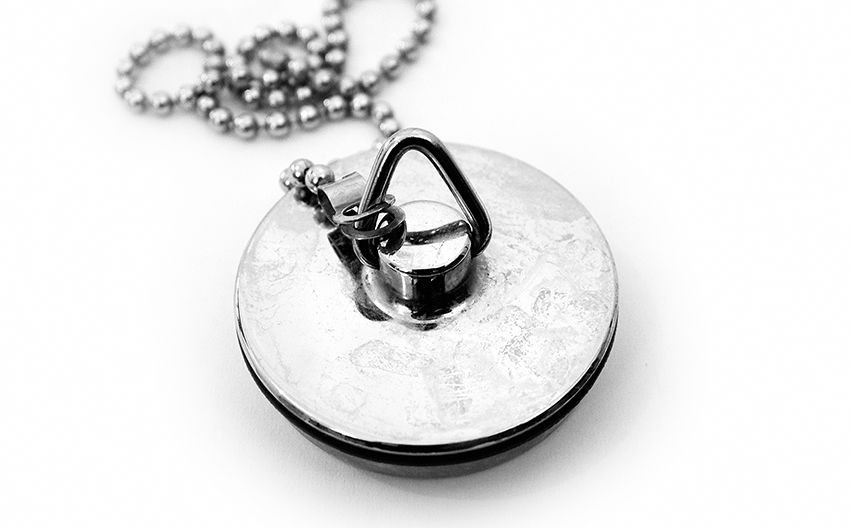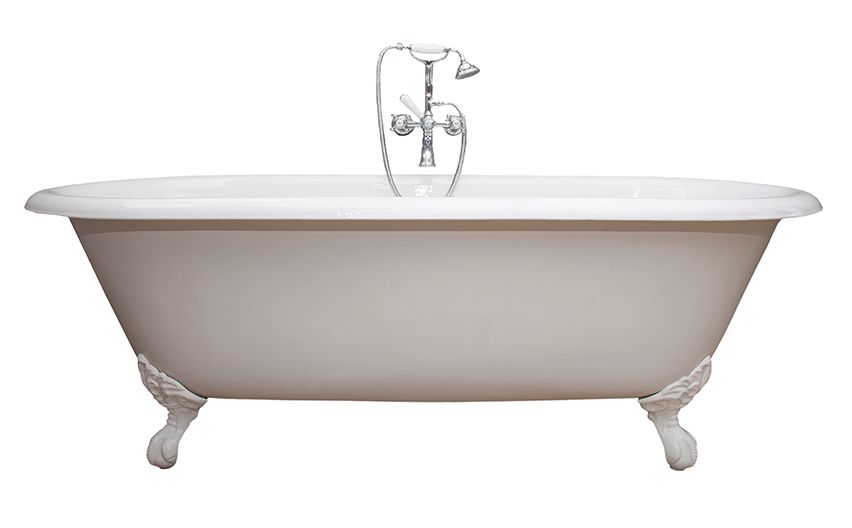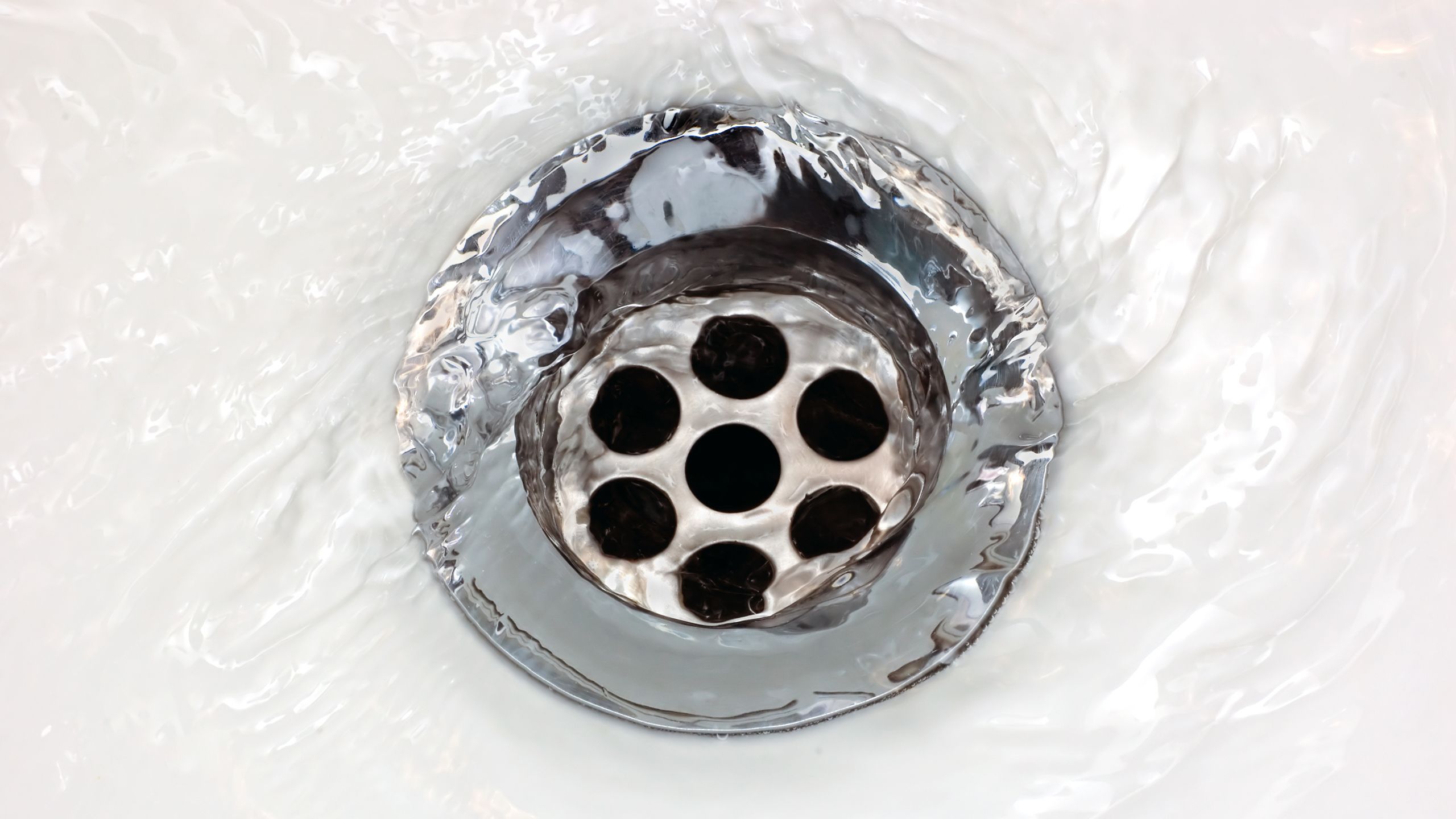Fleur de Lys flashback
A tribute to the bath plug

To celebrate the 150th anniversary of Trinity College, each month this year we are going to dive into the time machine and share stories and deliberations of our past students, as recorded in our annual student publication, the Fleur de Lys.
In this month’s Fleur de Lys flashback we share a story published in 1946 … about bath plugs. The Fleur has been known to cover all manner of topics, so why should bath plugs and their rich history be omitted?

Leisure should be unpleasantly curtailed for us to enjoy it more fully in retrospect. It is as if we were basking in hot water; the end of our leisure leaves us again in the cold, hard, materialist world, like sitting in a cold, hard, materialist bath when the water has run out.
Having been brought up in the highly intellectual atmosphere of the symbolist moderns, we shall cleverly say that the striking of the hour corresponds to the raising of the bath plug; the chiming of the clock sends the beauties of leisure fleeing as swiftly as raising of the bath plug sends the water regurgitating grotesquely and in that particularly fascinating manner down the pipes (see Psalm 42 on “the noise of thy water-pipes”).
Bath plugs may be considered first as the utilitarian agents of a materialist civilisation.
Being in the process of being carefully moulded and methodised by the History School, we know better than to let such a statement pass without proceeding to a critical examination of the source material.
Unfortunately, our ancients have left us little that can help us in our tracing the history of the bath plug; most of our evidence was allowed to slip unheeded down the drains of history, and we have only been able to find a few scanty sources. We are, however, fairly certain that the bath plug was unknown to the ancient Greek civilisation, whose representatives seem to have been more addicted to watching each other bathing in o’ershadowed lakes (see Virgil, or, if you prefer, see Venus).

This practice shows, I believe, one of the fundamental differences between the Greek attitude of life and our own. We find it difficult to imagine a classical Greek soberly filling a bath, sitting in it, raising the plug and stepping out, all in the rather self-conscious security of a modern bathroom. No, the myrtles and the nymphs and the opportunities for artlessly pinching each other’s garments from the banks were a necessary accompaniment to the bathing of the Greeks. By here a difficulty crops up which we may venture to present in the form of a syllogism:
Things were revealed to Archimedes in the bath
All baths have plugs
Therefore Archimedes must have used a bath plug
This, if we are not careful, may upset our thesis that the bath plug was unknown to the ancient Greeks.
However, a more critical examination of the second premiss will, I think, prove it to be incorrect. Archimedes did not stop to worry about small details like plugs; and since the mind of Archimedes was alert to every detail, we may safely presume there was no plug.
After Archimedes’ unfortunate disclosure of the plugless state of the Greek bath, we hear no more of the bath plug until an Act of Henry VIII, granting a monopoly to an experimental plugger, probably the first great English advocate of the bath plug, whose invention was imitated from designs brought over by the Flemish weavers, whom we can safely blame for practically anything in English history.
Our next evidence comes from the memoirs of Robespierre, who tells us disgustedly of a striking appurtenance of the suite of Marie Antoinette – a bath plug, ornamented very vulgarly and nouveau-richly with naked naiads, and so adjusted that the flow of water passing through it produced decadent tunes as it departed.
A more worthy mention of the bath plug was made in an appeal by Karl Marx in an address to the League of Health and Hygiene on the subject of the Great Unwashed:
Every man, rich and poor, should therefore have the opportunity of having a bath.

Karl Marx (Shutterstock image)
Karl Marx (Shutterstock image)
After this inspiring remark we have been able to find little further reference to our subject; it is to be hoped that some more brilliant mind (see the Trinity Dialectic Society) will be able to undertake further research into the growth and development of the British bath plug.
We now pass to the possibilities of the bath plug in modern poetry.
The word itself has immense onomatopoetic value; the explosive consonants, when pronounced by a phonetics expert, produce a pumping sort of sound very appropriate to the stolid, smug and unemotional nature of the bath plug. Why its possibilities in modern poetry have not yet been exploited I cannot guess; it seems to be just of the right ilk for the moderns – “bath” has the sort of slightly crude and risqué associations so dear to their hearts, and “plug” the mundane, earnestly materialist, down-to-earth-and-no-evasion sort of sound so much sought after. I cannot understand why its possibilities have not been sounded by our Eliot-aspiring Mr Kellaway.
In our first paragraph we discussed the finality of the bath plug. We saw it as an instrument of interruption. We must now discuss its psychological influence; we must consider the place of the plug in the making of the self-confident man. We have known those who jerk up the plug with a sort of resolution and defiance, as if they were determining to show life that even if it had not smiled on them they at least retained absolute control over their bath plugs.
Thus, from becoming an instrument of active derision in the hands of the strong-minded leisure-breaker, the bath plug becomes the passive sufferer of the self-will of the life-slighted, self-confidence seeker – the man who by an assertive, savage bullying of his bath plug seeks to fill his thwarted ravings for larger domination.
Nothing is more catastrophic than the lack of a bath plug. One may have a bath shining white, subtly black, suggestively pink, ghastily green; one may have (though rarely here, we fear) gallons of water simply itching at the taps; but the whole principle of the bath, its whole theory and method, is held up until a bath plug is produced. This, I think, is a profoundly shattering thought. It is by realising such things that we begin to see the sway the plug holds.
Nothing is more pitiful than seeing a grown man thwarted by the missing bath plug.
There is only one way of overcoming danger, only one way of avoiding subservience to the plug; but it is a way which shuts out all the luxuriance of the bath and all the relaxation and comfort it can give you – it is the strictly materialist use of the shower.
– J.E.A.






